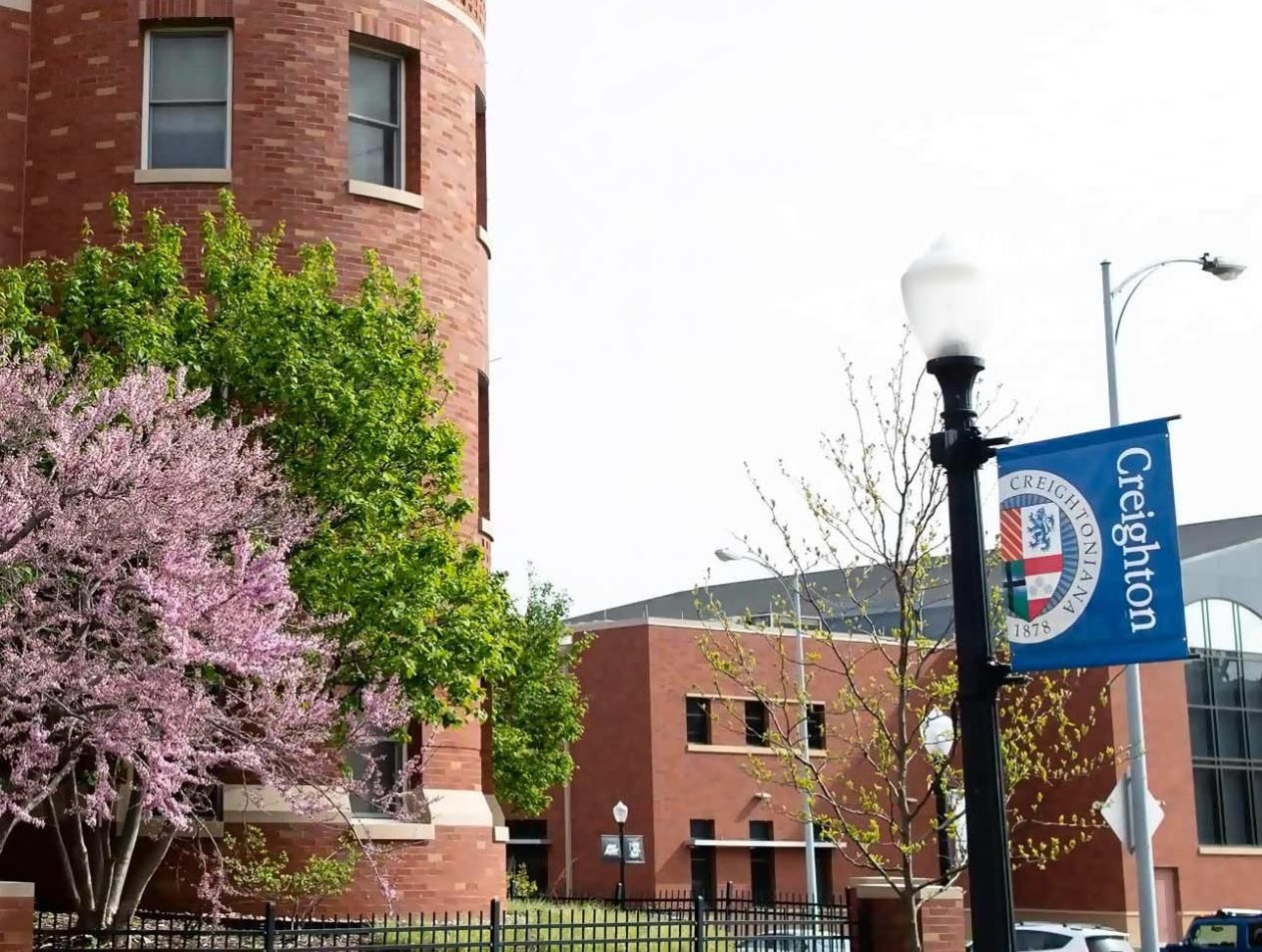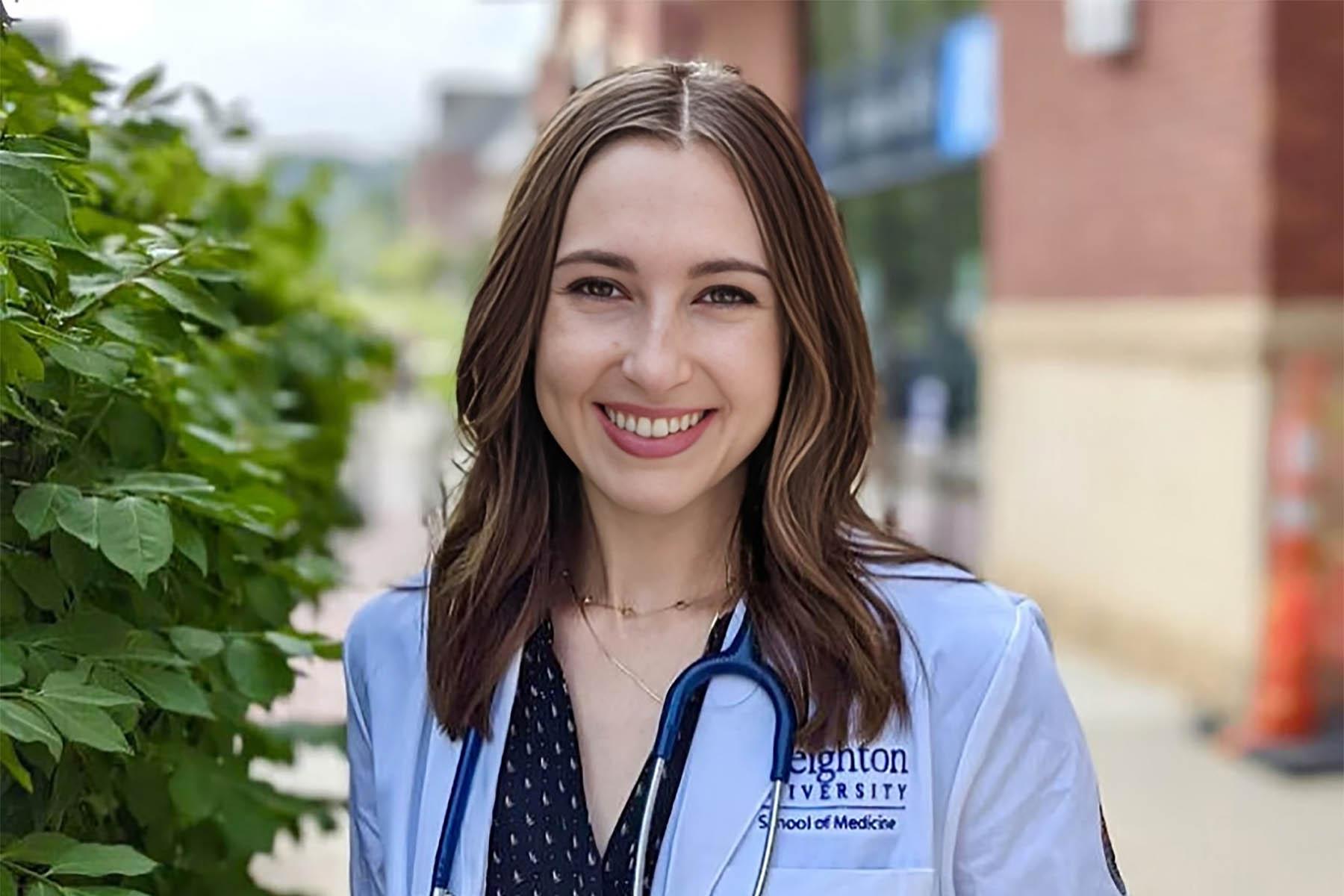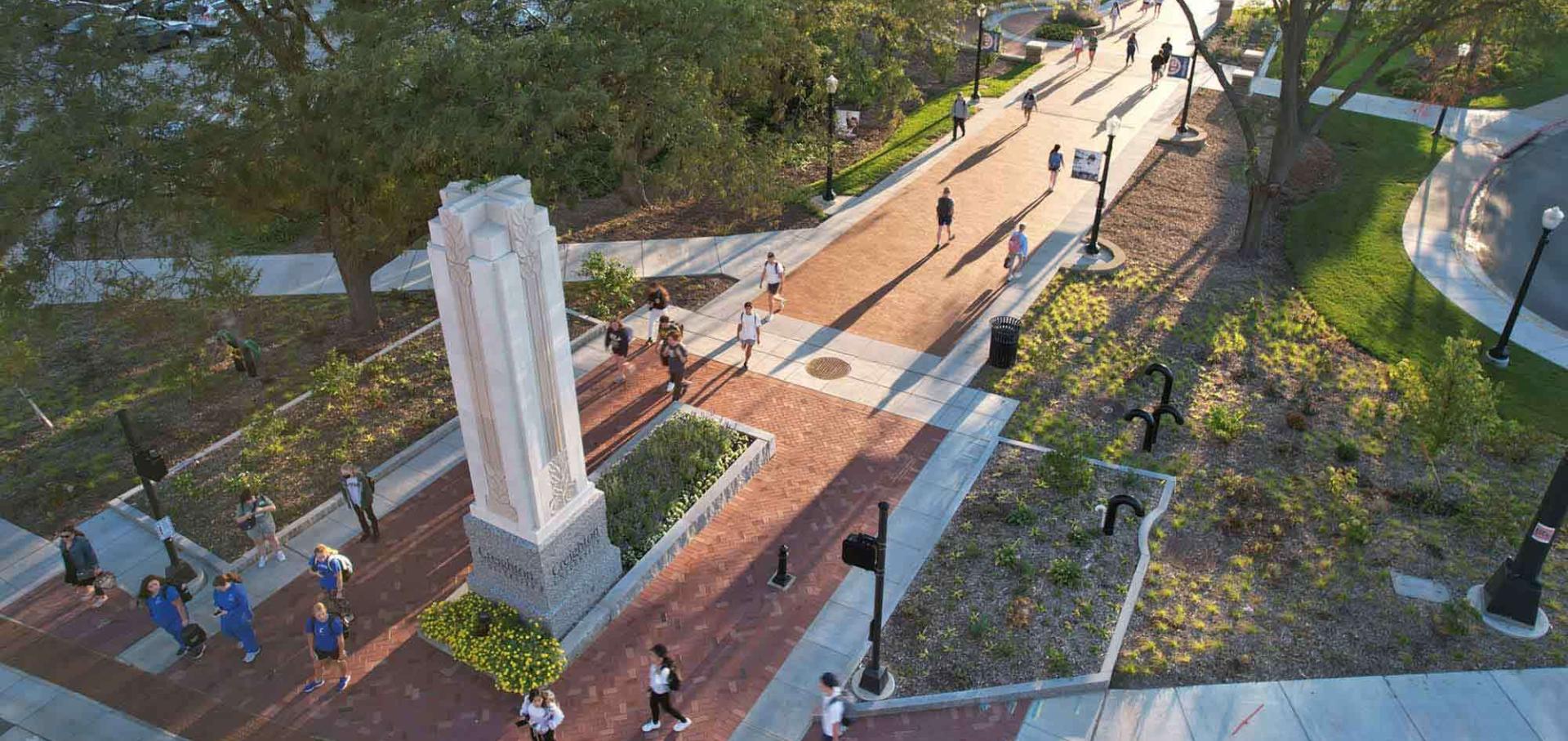Financial Aid for Med Students
Information on Financial Aid, Loans and Scholarships
Expand the sections below to learn more about your financial aid and scholarship options at Creighton.
Contact Us
Karen Malloy
Financial Aid Coordinator
402.280.2666
kmalloy@creighton.edu
Dr. C.C. and Mabel L. Criss Health Sciences Complex III, Room 470E
The first step in applying for financial assistance is to complete the Free Application for Federal Student Aid (FAFSA).
Creighton University Federal Student Code: 002542
The FAFSA is signed electronically with a Federal Student Aid ID (FSA ID) that can be obtained from the U.S. Department of Education at studentaid.gov/fsa-id/create-account/launch.
Creighton does not require parental information to be included on the FAFSA unless you are interested in applying for a Primary Care Loan (PCL). Parental information is required for a PCL, even if you are a married student. If parental information is included on the FAFSA, it will not affect your eligibility for Stafford and Grad Plus Loans.
Once your FAFSA is completed and processed, Creighton’s Financial Aid Office will determine your eligibility for financial assistance. You will receive an award letter with information on how to access your Creighton NEST account to accept the financial aid you’ve been offered. Keep in mind that you do not have to accept all of the financial aid that has been offered to you. Prior to accepting any financial aid, you should have developed a spending plan for the year.
Institutional Scholarships
For scholarships specific to Creighton University School of Medicine, please see the Financial Aid website or contact the Office of Medical Admissions.
MedAdmissions@creighton.edu
402.280.2799
800.325.4405
Service-Based Scholarships
National Health Service Corps
The National Health Service Corps (NHSC) offers a scholarship opportunity to students interested in pursuing primary healthcare training. Each year a student receives this scholarship, one year of service commitment is due to the funding agency in a health professional shortage area, with a minimum service commitment of two years.
Eligible residency programs include:
- Family Medicine
- General Pediatrics
- General Internal Medicine
- Internal Medicine/Pediatrics
- Internal Medicine/Family Practice
- Obstetrics/Gynecology
- General Psychiatry
- Geriatrics
The scholarship award covers:
- Tuition and fees
- Reasonable educational expenses
- Monthly stipend
Armed Forces Health Professions Scholarship Program
Each branch of the Armed Forces offers a service-based scholarship program. Like the NHSC scholarship, one year of service is required for each year the scholarship is awarded. There is a two-year minimum service commitment (three years for the Air Force).
The scholarship award covers:
• Tuition and fees
• Health insurance
• Books
• Monthly stipend
Additional information for the Army, Navy and Air Force can be found on their respective websites.
See Creighton University’s Financial Aid website for details on loan programs.
For questions about how loan funds are disbursed, contact the Business Office.
Residency Interview and Relocation Loans:
Residency Interview and Relocation Loans are private loans available to fourth year medical students to assist with the costs associated with finding a residency, which are not included in the Cost of Attendance budget. These loans are credit based and eligibility requirements vary by lender.
To determine the right lender for your loan, compare the variable and fixed interest rate range, loan fees, maximum aggregate student loan limits, deferment and forbearance options and loan repayment options. These are private loans, and as such, are not subject to any of the federal student loan repayment or forgiveness options. Private loans may or may not have a death or permanent disability discharge. Keep in mind that the interest rate on a loan issued at a variable interest rate may increase if interest rates begin to increase.
These loans should be borrowed strictly for the use of residency-related expenses. For most medical students, incurring debt to attend medical school is unavoidable. But borrowing private money, which is a lot like credit card debt, should be kept to a bare minimum.
The following are some lenders who currently offer residency and relocation loans. Creighton does not endorse any loan provider nor does Creighton have any type of relationship with any lender offering this type of loan. Students need to do their own investigative research to determine which lender is best suited for their needs. Creighton does not participate in any way in determining the credit worthiness of the applicant leading to approval or denial for this type of loan.
AAMC First Facts for Medical Education offers helpful facts for every stage of your medical education. First Facts are one-page fact sheets written specifically for medical students and residents that shorten confusing or complex topics to the basics. You can also download the Education Debt Manager Guide from that site for information about student loans, repayment, budgeting, credit cards and establishing and maintaining good credit throughout medical school.
Within the School of Medicine, we know that students who make wise decisions about financial issues will have greater freedom in specialty choice and lifestyle throughout their professional careers. To that end, series of mandatory presentations are offered by the school. In addition, our financial aid coordinator is available for individual consultation.
“It means the world to me to have the kind of scholarship support that Creighton has granted.”
Lauren Walters, Medical Student


















